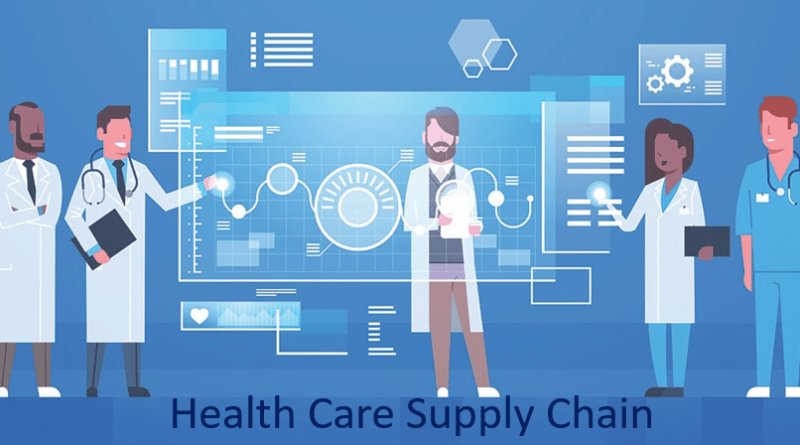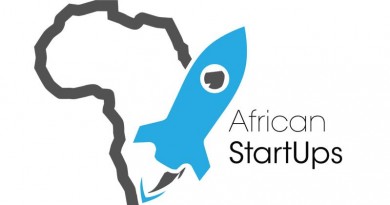Innovations in Digitizing Health Supply Chains in Africa
Report on Innovations in Digitizing Health Supply Chains in Africa released by Salient Advisory, a healthcare consulting firm highlighting a powerful pan-African ecosystem of innovators increasing the safety and efficiency of health supply chains across the continent.
The “Innovations in Digitizing Health Supply Chains in Africa” report, funded by the Bill and Melinda Gates Foundation, is the continent’s first pan-African landscape of health supply chain innovators. It follows over 350 tech-enabled innovators who are digitizing supply chain procedures in 27 African countries.
The long-term durability and impact of supply chain improvements that arose in the midst of the COVID-19 outbreak were unknown. While the rate of new entrants has slowed significantly, findings show African governments collaborating with health supply chain innovators on nearly 50 partnerships, leveraging their tech-enabled solutions to address long-term challenges in public health supply chains such as availability, accessibility, and quality of health products. Nearly half of the identified relationships are focused on helping governments to digitize ordering and inventory management in order to increase efficiency and reduce waste, demonstrating governments’ considerable interest in adopting digital order and inventory management systems.
While most innovators collaborating with governments are more mature, such as Zipline and mPharma, numerous younger startups, such as Nigeria’s Figorr and Zimbabwe’s Vaxiglobal, have forged public sector relationships early on. As Africa’s digital landscape develops, governments appear to be becoming more interested in backing ideas that have a social benefit while also producing jobs. The rapid appearance of these alliances also bodes well for governments throughout the continent developing innovation-friendly legislation.
Disparities in funding trends continue to be visible throughout the health supply chain innovation ecosystem. While innovators have raised $2.6 billion in funding since their inception, e-commerce enterprises and medical drone delivery operators based in the United States and Europe account for 77% of all funding raised; the remaining innovators have raised $584 million since their inception. While the government appears to be interested in ordering and inventory management improvements as a potential road to growth, firms in this category have received only 9% of all investment since their inception.
Plug N Play Ventures and Launch Africa are the most active providers of equity investing in this field, with the Investing in Innovation program, the Bill & Melinda Gates Foundation, and Google’s Black Founders Fund providing the most awards. The 29 women-led businesses operating across Africa (with a significant concentration in Nigeria and Kenya) continue to face limited access to equity financing, forcing them to rely heavily on debt and grants. Outside-of-the-continent innovators have also raised 83% of total capital ever recorded, with massive e-commerce titans and medical drone delivery companies scooping the majority of external investment.
Similarly, gender financing disparities are obvious, with companies created only by women accounting for 8% of all startups but receiving only 2% of all reported capital throughout time. Due to a lack of access to equity finance, women-led businesses must rely more heavily on debt and grants.
As the ecosystem evolves, innovators will deliver supply chain solutions to governments, industry, global health agencies, and others on a larger scale. The report advocates for the development and implementation of trade financing and insurance solutions to allow mature innovators to distribute larger volumes of health products to institutional customers, changes to global health agencies’ purchasing processes to allow innovators to participate in donor-funded supply chains, and the continued deployment of grants to foster inclusive and effective innovation ecosystems.
“The report offers the first comprehensive overview of tech-enabled health supply chain innovators emerging across Africa,” said Remi Adeseun, Director at Salient Advisory, speaking at the report’s introduction. We are shocked – and delighted – to see so many government-innovator collaborations underway at both the national and sub-national levels. We urge global health funders, agencies, and industry partners to collaborate with governments and investors to promote high-potential innovators, therefore fostering more efficient and resilient healthcare supply chains and creating jobs.”
“African health innovators have demonstrated an impressive ability to use technology for the optimization of supply chain solutions and the improvement of access to medicines,” said Hany Abdallah, Senior Program Officer, Supply Chain Systems at the Bill & Melinda Gates Foundation. We are excited to see this improvement, especially as it coincides with an increase in government relationships, which will lead to better health outcomes. This trend demonstrates governments’ and health IT innovators’ trust and collaboration, as well as a shared commitment to creating positive change and encouraging innovation across the continent.”
“Leveraging tech-enabled solutions to digitize national supply chains across the country has had a transformative effect on the efficiency and product visibility across our local supply chains,” said Jules Sergine Agbeci, Director of Operations at Office Pharmaceutique National, Gabon. As entrepreneurs develop more technology-driven models, more government agencies across the continent will have opportunity to test these solutions and provide clarity on their supply chain demands, allowing public health systems to leapfrog long-standing issues.”




